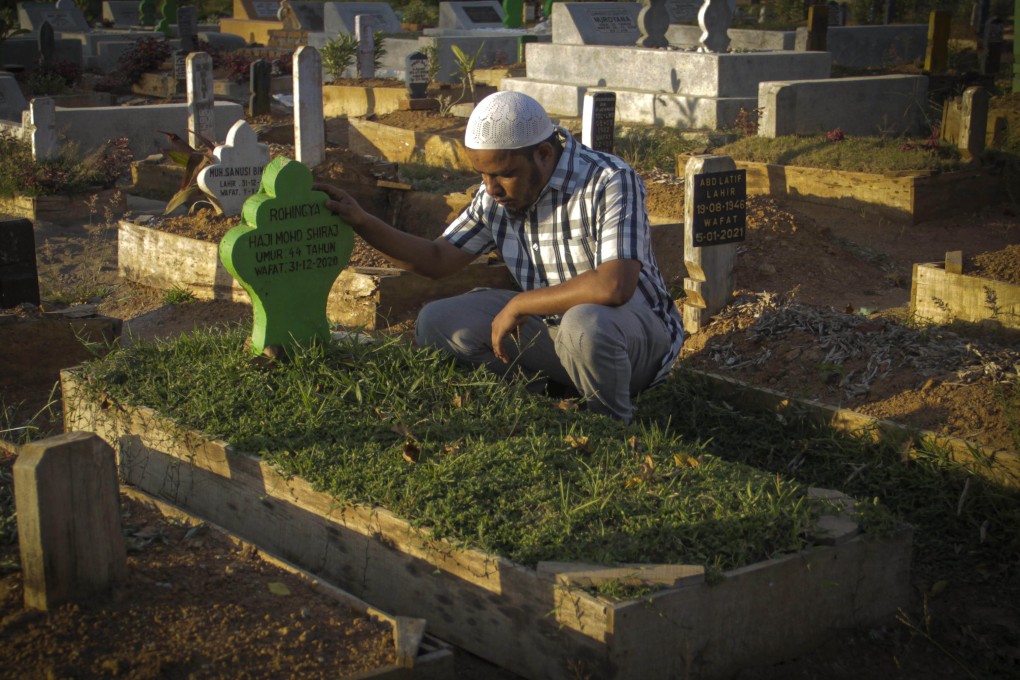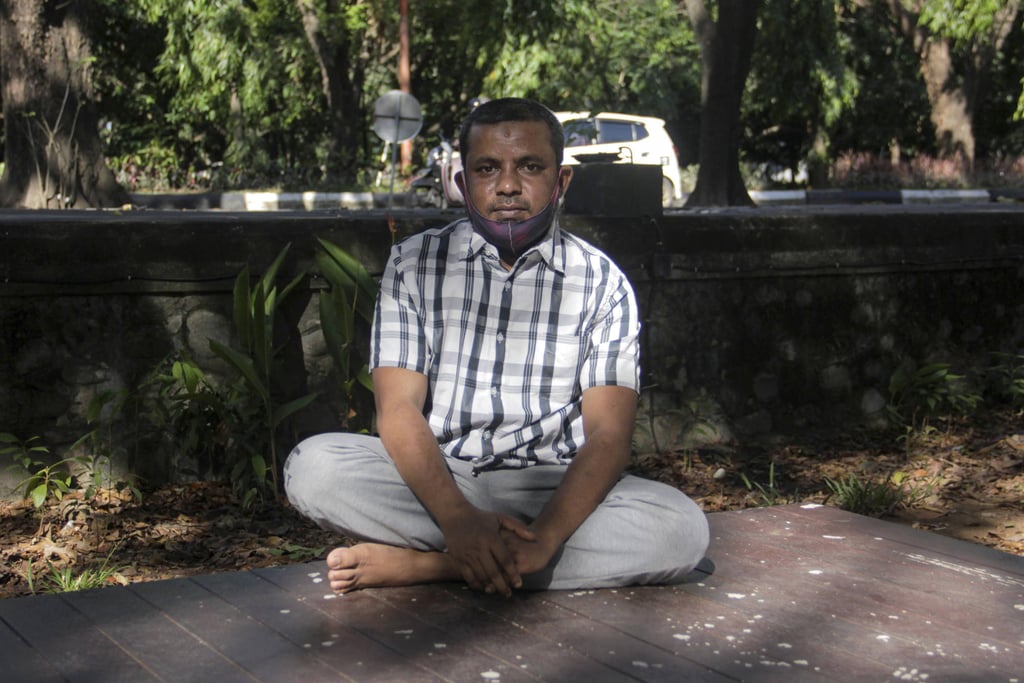‘Waiting for us to die’: Indonesia’s Rohingya refugees left in legal limbo for years
- Makassar, in Indonesia’s South Sulawesi province, is home to thousands of refugees and asylum seekers – but legally, all are just ‘transiting’
- Dwindling resettlement quotas in third countries mean some have been waiting to leave for a decade or more, as they battle with illness and depression

The number of people fleeing wars, violence, persecution and human rights violations rose for the ninth year in 2020 despite the pandemic, according to the United Nations’ refugee agency. About 20.7 million people are considered refugees under the UNHCR’s mandate. On World Refugee Day, This Week in Asia looks at the plight of Rohingya communities seeking temporary refuge in Indonesia and India.
“A big part of my life has been spent running,” said Reyas as he walked around the city’s Sudiang Public Cemetery wearing a white skullcap and plaid shirt. “I don’t know when it will end.”

Although Reyas left his hometown of Buthidaung, in the far west of Myanmar’s Rakhine State, in 2009, he still remembers the discrimination he felt as a child. “When we were at school, we Rohingya had to sit in the back of the class, never in the front,” he said. “We just kept quiet, hoping it would get better. But it didn’t.”
The 14-day sea journey there saw Reyas cowering in the hull of a boat alongside other refugees as all prayed they would survive the storms that battered their vessel. Their only food was instant noodles, eaten raw, twice a day.
“After that we would just drink water, a little, only half a glass. I felt my body getting thinner and weaker every day,” Reyas said.